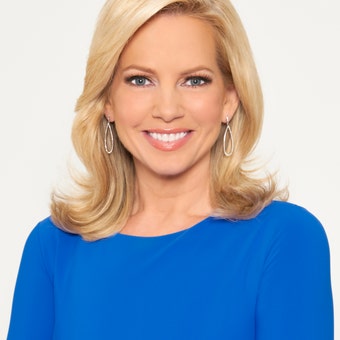Supreme Court has been avoiding the issue of presidential immunity for decades: Jonathan Turley
Fox News contributor Jonathan Turley joins 'Fox & Friends' to discuss the presidential immunity case being taken up by the Supreme Court and the upcoming ruling on whether Trump violated his gag order.
The Supreme Court waded cautiously Thursday in a landmark area of law it has never before encountered: whether former presidents have "absolute immunity" from criminal prosecution, stemming from the special counsel's federal election interference case.
In a special courtroom session lasting more than two and a half hours, the justices appeared to be looking for middle ground that might see at least some of Trump's sweeping claims dismissed, while still allowing future presidents to be criminally exempt from clearly official executive functions — like their role as commander in chief.
The official question the justices are confronting: "Whether, and if so, to what extent does a former president enjoy presidential immunity from criminal prosecution for conduct alleged to involve official acts during his tenure in office?"
In riveting arguments, a partisan divide developed early on the nine-member bench, as it weighed whether and when executive official duties versus private conduct in office could be subject to prosecution.
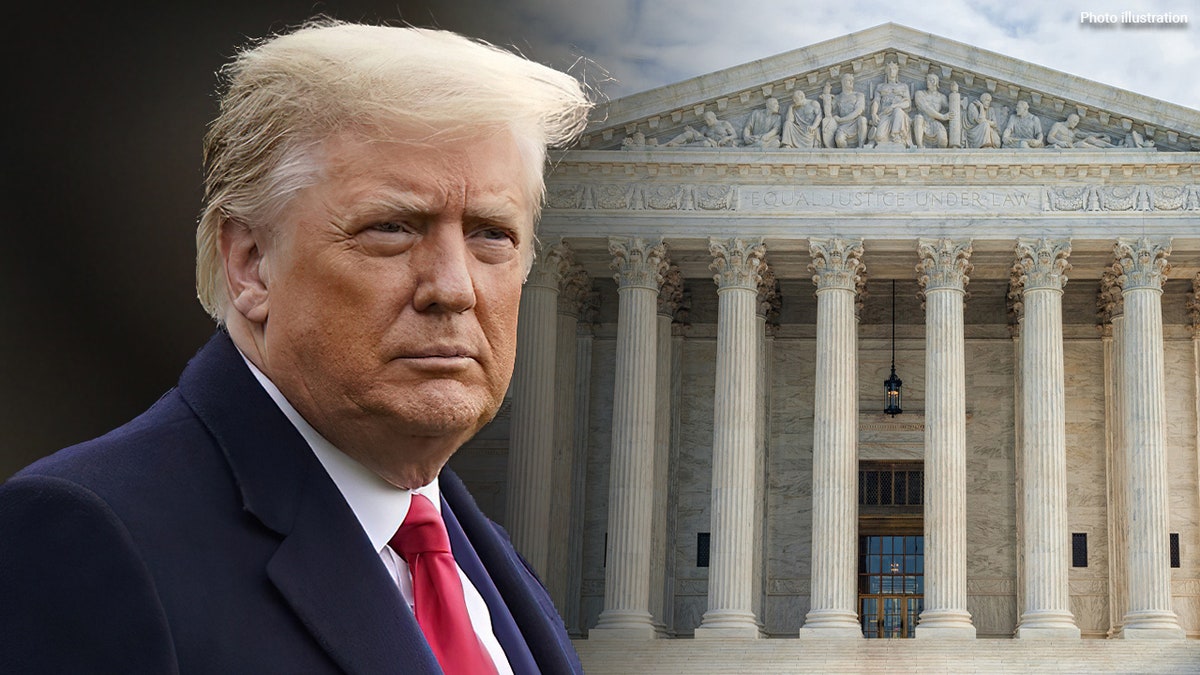
Trump was not in attendance at the argument but talked about the stakes when greeting supporters at a New York construction site. (Fox News)
Both liberal and conservative justices focused on the broader implications for future presidents.
"If the potential for criminal liability is taken off the table, wouldn't there be a significant risk that future presidents would be emboldened to commit crimes with abandon while they're in office?" asked Justice Ketanji Brown Jackson. "If someone with those kinds of powers, the most powerful person in the world with the greatest amount of authority, could go into office knowing that there would be no potential full penalty for committing crimes, I'm trying to understand what the disincentive is from turning the Oval Office into, you know, the seat of criminal activity in this country."
Justice Samuel Alito asked, "If an incumbent who loses a very close, hotly contested election, knows that a real possibility after leaving office is not that the president is going to be able to go off into a peaceful retirement, but that the president may be criminally prosecuted by a bitter political opponent, will that not lead us into a cycle that destabilizes the functioning of our country as a democracy?"
Justice Brett Kavanaugh summed up the stakes, however the court rules: "This will have huge implications for the presidency."
Trump was not in attendance at the argument but talked about the stakes when greeting supporters at a New York construction site.
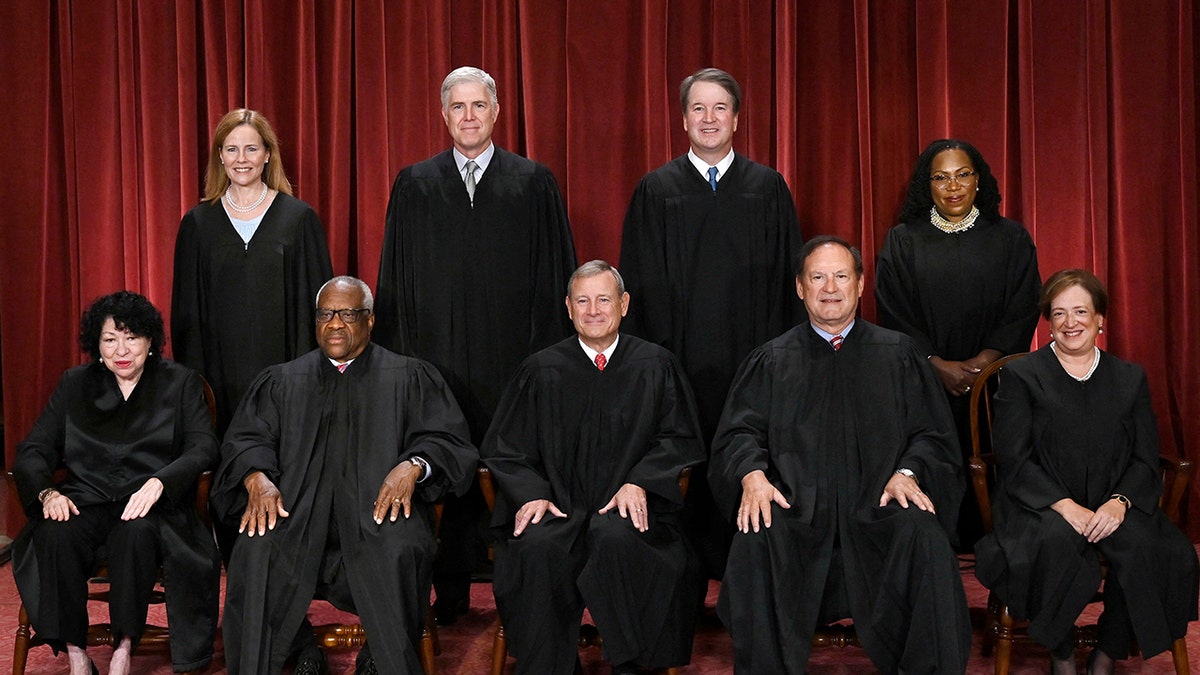
Justices of the U.S. Supreme Court pose for their official photo at the Supreme Court in Washington, D.C., on October 7, 2022. Seated from left: Associate Justice Sonia Sotomayor, Associate Justice Clarence Thomas, Chief Justice John Roberts, Associate Justice Samuel Alito and Associate Justice Elena Kagan, (Standing behind from left) Associate Justice Amy Coney Barrett, Associate Justice Neil Gorsuch, Associate Justice Brett Kavanaugh and Associate Justice Ketanji Brown Jackson. (OLIVIER DOULIERY/AFP via Getty Images)
"A president has to have immunity," he said Thursday morning. "If you don't have immunity, you just have a ceremonial president, you won't have a president."
The underlying factor is time — whether the court's expedited ruling, expected in May or June, would allow any criminal trial to get underway before the November presidential election. Depending on the outcome, jury selection could begin by late summer or early fall, or the case could be delayed indefinitely or dismissed altogether.
SUPREME COURT SHARPLY DIVIDED OVER ENFORCING MUNICIPAL HOMELESS CAMPING BAN
The stakes could not be higher, for both the immediate political prospects and the long-term effect on the presidency itself and the rule of law.
As the presumptive GOP nominee to retake the White House, Trump is betting that his broad constitutional assertions will lead to a legal reprieve from the court's 6-3 conservative majority — with three of its members having been appointed to the bench by the defendant himself.
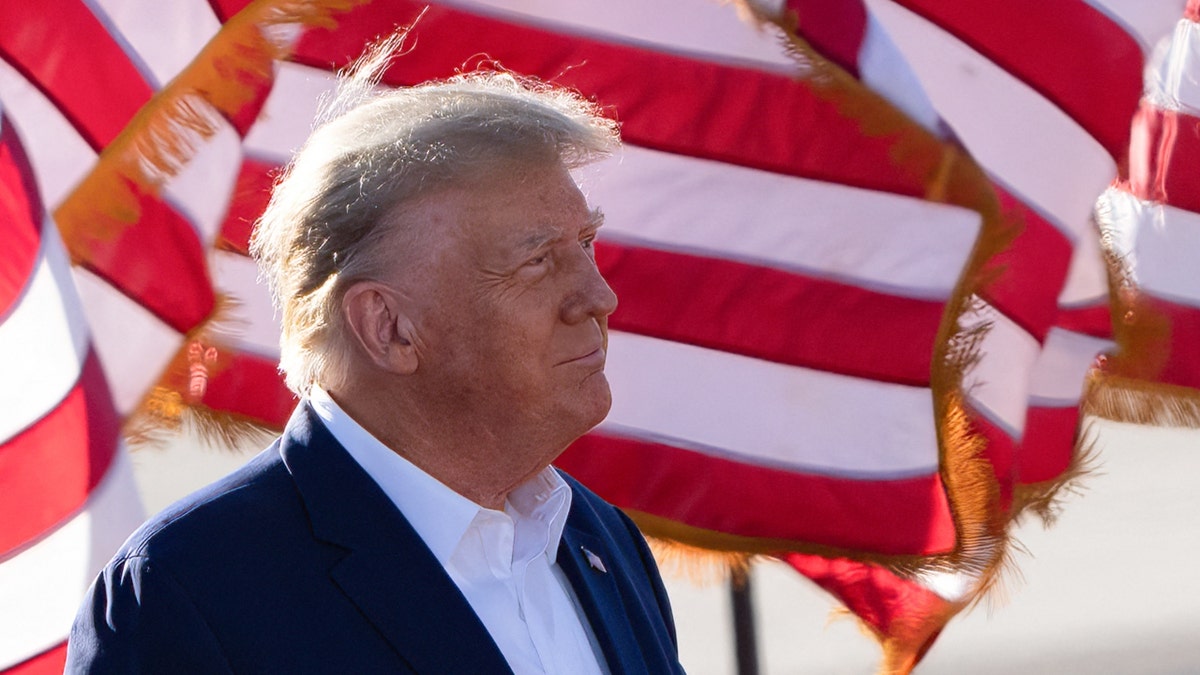
Former U.S. President Donald Trump speaks during a 2024 election campaign rally in Waco, Texas, March 25, 2023. (SUZANNE CORDEIRO/AFP via Getty Images)
Special Counsel Jack Smith has charged the former president with conspiracy to defraud the United States; conspiracy to obstruct an official proceeding; obstruction of and attempt to obstruct an official proceeding; and conspiracy against rights.
Those charges stemmed from Smith's investigation into Trump's alleged plotting to overturn the 2020 election results, including participation in a scheme to disrupt the electoral vote count leading to the subsequent January 6, 2021, U.S. Capitol riot. Smith and several of his deputies attended the arguments.
Trump pleaded not guilty to all charges in August.
The lengthy courtroom arguments raised a series of hypotheticals to explore the "outer perimeter" of criminal executive liability.
Several justices wondered whether a president could someday be prosecuted for ordering the assassination by his military of a political rival; ordering a nuclear weapons strike; or demanding a bribe for a political appointment.
"If you expunge the official part from the indictment, that's like a one-legged stool, right?" said Chief Justice John Roberts, suggesting official executive acts could be separated from partisan, unofficial acts. "I mean, giving somebody money isn't bribery unless you get something in exchange. And if what you get in exchange is to become the ambassador of a particular country, that is official: the appointment that's within the president's prerogatives. The unofficial part: I'm going to get $1,000,000 for it."
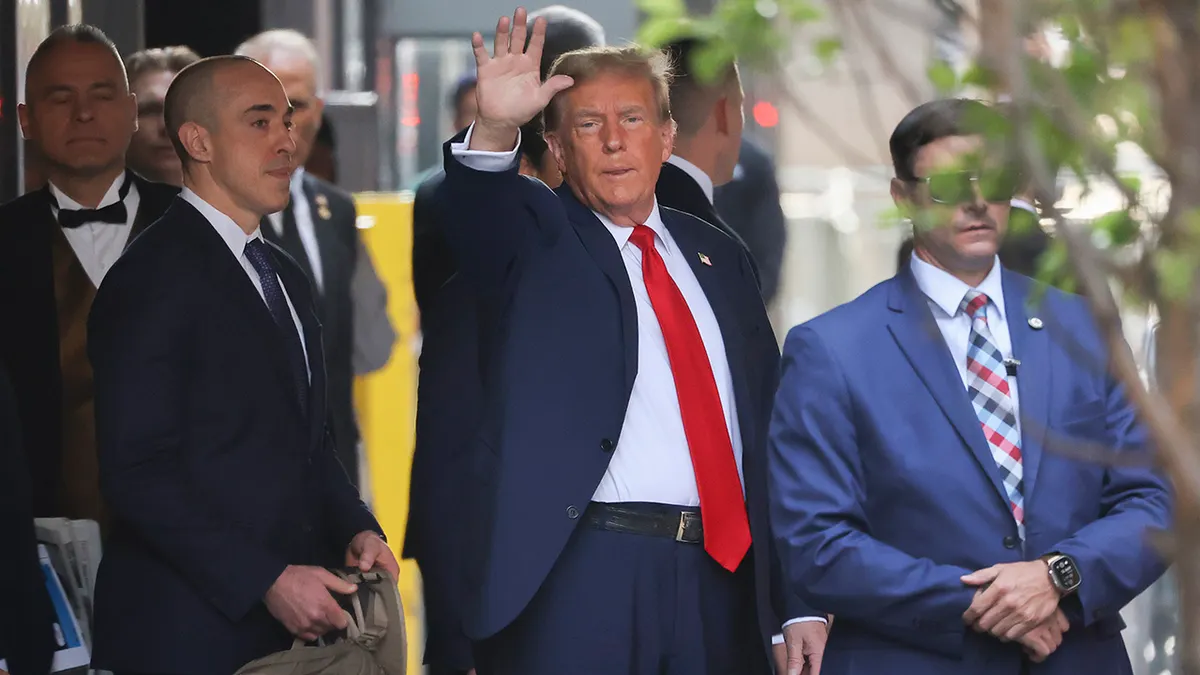
Former President Donald Trump leaves Trump Tower on his way to Manhattan criminal court, Monday, April 15, 2024, in New York. (AP Photo/Yuki Iwamura)
Justice Elena Kagan asked whether the president could stage a coup to remain in office. When John Sauer, Trump's attorney, hedged on an answer, Kagan replied, "That answer sounds to me as though, under my test, it's an official act," subject to post-office prosecution. "But that sure sounds bad, doesn't it?"
She added there was no immunity clause in the Constitution for a good reason. "Wasn't the whole point that the president was not a monarch and the president was not supposed to be above the law?"
Michael Dreeben, attorney for the Special Counsel’s office, defended the government’s position.
"It's baked into the Constitution that any president knows that they are exposed to potential criminal prosecution," he said. "It's common ground that all former presidents have known that they could be indicted and convicted. And Watergate cemented that understanding."
Sauer suggested only an impeachment and conviction in the Senate could lead to future criminal prosecution of an ex-president.
"There are many other people who are subject to impeachment, including the nine sitting on this bench," said Justice Amy Coney Barrett, pointing to her colleagues, "and I don't think anyone has ever suggested that impeachment would have to be the gateway to criminal prosecution for any of the many other officers subject to impeachment. So why is the president different when the impeachment clause doesn't say so?"
Justice Sonia Sotomayor focused on the specific allegations facing Trump and other potential criminal liability, which no jury has yet considered. "I'm having a hard time thinking that creating false documents, that submitting false documents, that ordering the assassination of a rival, that accepting a bribe and a countless other laws that could be broken for personal gain, that anyone would say that it would be reasonable for a president or any public official to do that."
TRUMP WARNS THAT IF HE LOSES PRESIDENTIAL IMMUNITY, SO WILL 'CROOKED' JOE BIDEN
But Kavanaugh, who served as President George W. Bush's staff secretary, a key White House legal adviser on executive power, offered larger concerns.
"I'm not focused on the here and now of this case. I'm very concerned about the future," he said.
"We're writing a rule for the ages," added Justice Neil Gorsuch.
Trump faces criminal prosecution in three other jurisdictions: another federal case over his handling of classified documents while in office; a Georgia case over alleged election interference in that state's 2020 voting procedures; and a New York case over alleged fraud involving hush money payments to an adult film star in 2016.
Jury selection in the New York state case began April 15.
But the start of the election interference trial in Washington remains in doubt. Again, depending on how the court rules, proceedings may not get underway until later this summer, early fall, or perhaps much later.
The wildest of wildcards: Trump wins re-election and then, upon taking office, orders his attorney general to dismiss the special counsel and his cases. Some justices wondered if Trump — if re-elected — could execute a self-pardon for all past and future crimes.
But the practical fact is that Jack Smith's case is frozen for now.
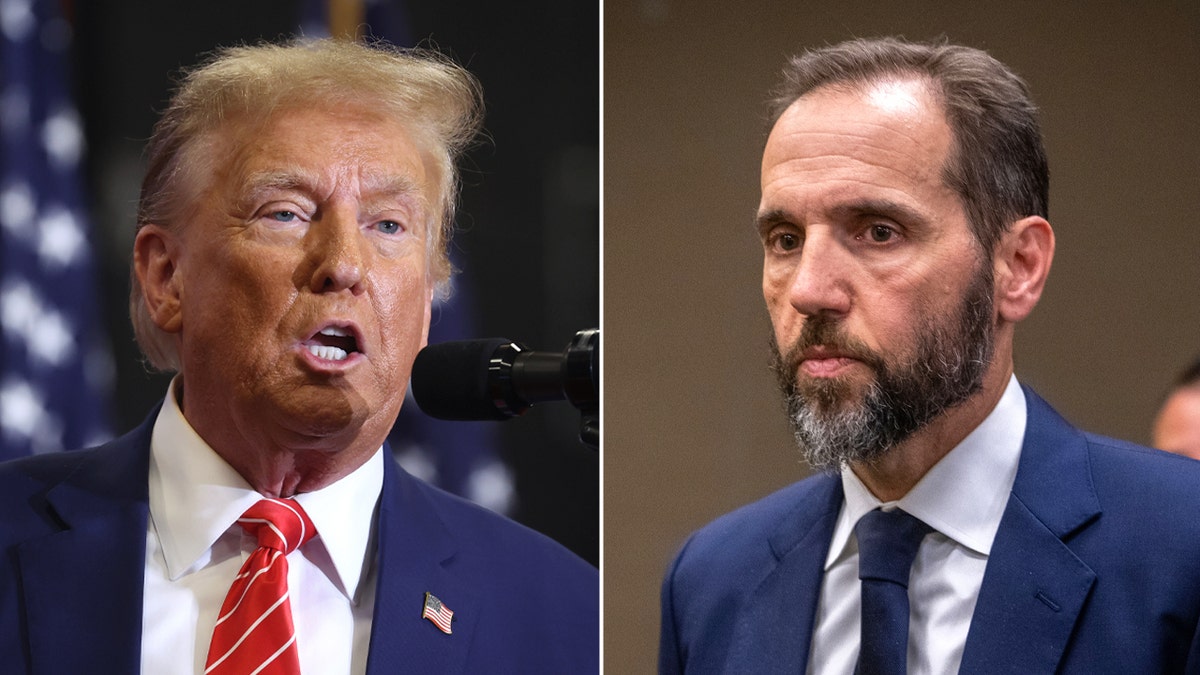
Donald Trump and Jack Smith (Getty Images)
And while this appeal would normally be decided in late June at the end of the Court's term, it is being expedited, so a ruling could come sooner.
If the Supreme Court rules in the government's favor, the trial court will "un-pause" — meaning all the discovery and pre-trial machinations that have been on hold would resume.
Trump's team would likely argue to trial Judge Tanya Chutkan that they need several months at least from that point to actually be ready for a jury trial.
A sweeping constitutional victory for the former president would almost certainly mean his election interference prosecution collapses and could implicate his other pending criminal and civil cases.
CLICK HERE TO GET THE FOX NEWS APP
But for now, Trump may have achieved a short-term win even if he eventually loses before the Supreme Court — an indefinite delay in any trial, that may carry over well past Election Day on Nov. 5.
The case is Trump v. U.S. (23-939).








































